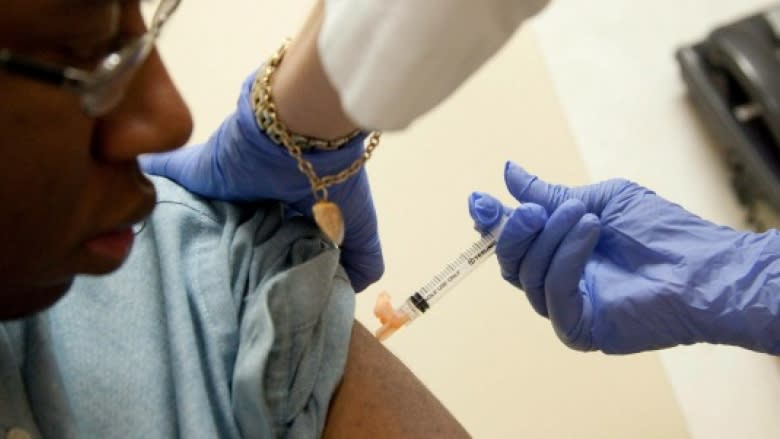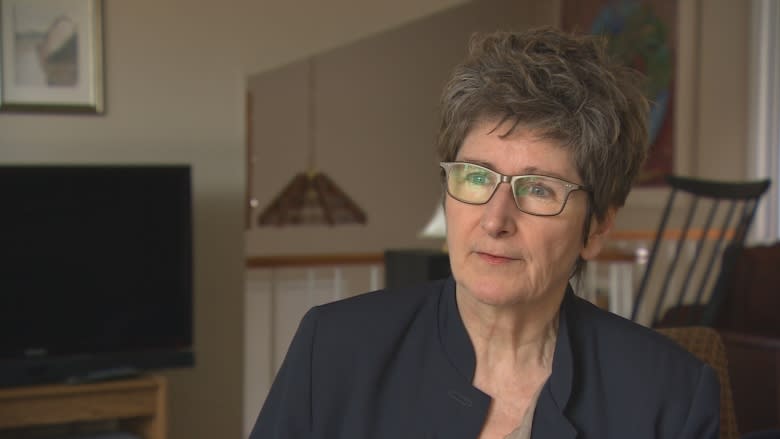New company is poaching nurse practitioners from health-care system: union
A new business run by nurse practitioners in Winnipeg has some critics concerned it could take away resources from the public health-care system.
Timely Care Clinic is a new company that brings health-care services to a patient's home, in exchange for a fee.
Kaitlyn Yurick is one of four nurse practitioners who makes house calls for patients in Winnipeg who are too sick to leave home, or would rather get the health-care services they need at home than wait hours in an emergency room.
"It's time saving and convenient," said Yurick.
The service is not covered by Manitoba Health, and patients have to pay out of their own pocket.
"The benefits are you don't have to leave home when you're sick, or possibly well but maybe not as mobile," said Yurick, who also works part-time in a hospital.
"The response has been really exciting."
Timely Care Clinic, which has only been operating in Winnipeg for about two weeks, offers services to treat issues from bladder, ear, and sinus infections to the flu, and even offers medical exams and pregnancy tests.
House visits are usually $50 while "virtual visits," which involve an online video consultation with a nurse practitioner, are $40, plus any extra fees associated with medical tests.
Shortage of nurse practitioners: union
The Manitoba Nurses Union said it's opposed to companies like Timely Care offering private health services to Manitobans.
"There is already a shortage of nurse practitioners, and private clinics like these will now poach them from an already stretched thin public system," Manitoba Nurses Union head Sandi Mowat said in a statement to CBC.
A better plan would be to encourage the public to use the existing QuickCare clinics operated by the province to their fullest capacity, she said.
The union said the nurse practitioners employed at Timely Care are not covered under any collective agreement with MNU.
Lynne Fernandez, a researcher from the Canadian Centre for Policy Alternatives, said she is also concerned the company is taking services away from an already stretched health care system.
"What this company is allowing you to do is jump the queue and go in and get your diagnostic service done, but you have to pay out of pocket for that," Fernandez said.
"My concern is that there are limited resources available to the health-care sector and they are bleeding resources … into the private sector."
Fernandez also questions what the impact will be on the province's QuickCare clinics, which are already staffed by nurse practitioners.
The Winnipeg Regional Health Authority recently closed the St. Mary's Road QuickCare clinic because of staffing issues.
Health Minister Kelvin Goertzen said a lack of staffing has been an issue at Winnipeg's six QuickCare clinics, resulting in rotating closures.
"I would question why they don't have enough staff for it," Fernandez said. "If the reason they're closing is because of a lack of staff then that's something that needs to be addressed."
"This is a new business in the community, so we can't be sure what impact it will have," said Lori Lamont, vice-president and chief nursing officer with the Winnipeg Regional Health Authority, in a statement to CBC.
"Nurse practitioners play a valued and important role in primary care service delivery within the WRHA, however, and we see that role continuing."
Yurick said the goal of the company is not to take away nurse practitioners from Manitoba hospitals.
"I don't think that we'll compete with the public sector, I think we're going to compliment it," said Yurick.
"It's no different than physicians working public versus private in emergency rooms or [in] access centres versus their own practice," she said.
"There's lots of nurse practitioners that are going to want to stay in the public sector."




